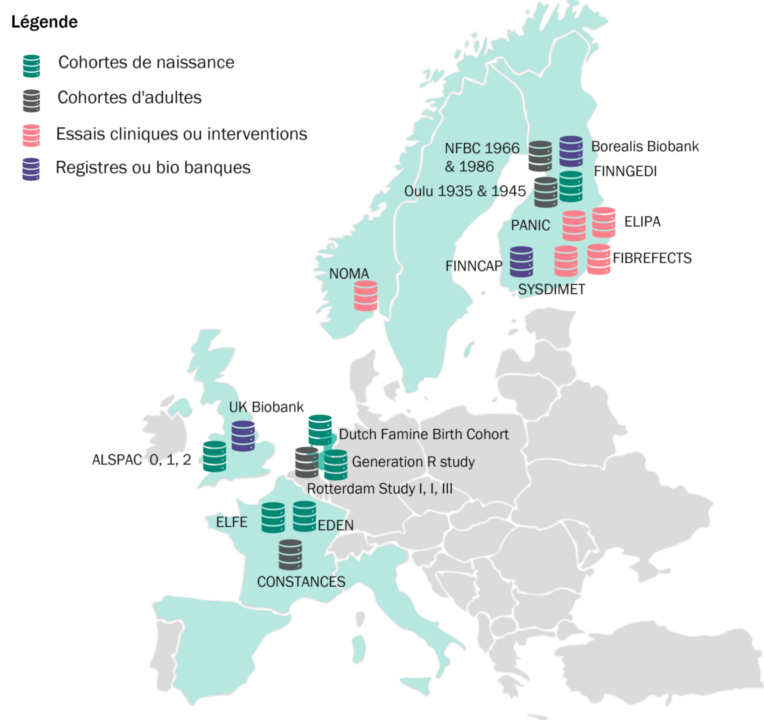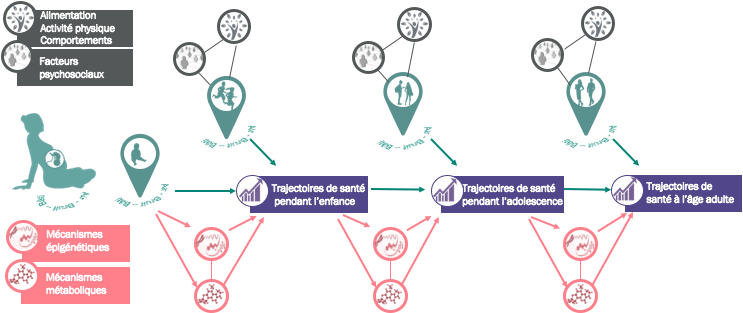Context
Environmental factors such as air pollution, noise and built environment are recognised as factors associated with non-communicable cardiovascular and metabolic diseases such as obesity, type 2 diabetes, heart disease and atherosclerosis. Individual cardio-metabolic health is the result of a set of anthropometric, glycaemic, cardiac and lipid health trajectories that begin at birth, or even during the foetal period, and can be impacted by environmental exposures during the sensitive periods of childhood, adolescence and adulthood.
The aim of the European LongITools project is to study the role of the exposome in these population trajectories of cardiometabolic health, using a lifelong approach. The concept of the exposome has been proposed to describe all the environmental exposures that take place throughout life, from conception and pregnancy to late adulthood.
The project’s specific objectives are:
- To develop and/or to adapt advanced statistical methods to incorporate the longitudinal dimension in exposome-wide studies, including risk prediction;
- To define the mechanisms involved in the onset of disease and identify windows of opportunity for risk-reducing interventions;
- To propose economic estimates and simulations to identify the benefits of improving the quality of the outdoor environment in order to reduce the burden of non-communicable diseases.
Methods
Coordinated by the University of Oulu (Finland), it began in 2020 and will run for 5 years. Based on a partnership of 15 academic teams and 3 small companies from 8 European countries, it is based on data from birth cohorts or adult cohorts, randomised trials, registries and biobanks, including three French cohorts: EDEN, ELFE and CONSTANCES (Figure 1).

This project aims to study how environmental exposures affect cardiovascular and metabolic health trajectories at different stages of life (Figure 2). The mediating role of the biological response to these environmental exposures, reflecting the process of biological incorporation, is based in particular on the study of the metabolome or methylome.

Evidence-based causal chain models will be used to estimate how environmental and political interventions can have a lasting impact on the health and economic burden of cardio-metabolic diseases. The results will enable the creation and validation of new surveillance and forecasting methods and tools to support the development and evaluation of health policies.
Funding
LongITools is part of the European Human Exposome Network (EHEN), the world’s largest network of projects studying the impact of environmental exposures on human health. It brings together nine projects receiving more than €100 million from Horizon 2020, the EU’s framework programme for research and innovation. The nine research projects involved are ATHLETE, EPHOR, EQUAL-LIFE, EXIMIOUS, EXPANSE, HEDIMED, HEAP, LongITools and REMEDIA.
Project links
https://longitools.org/news/how-you-are-supporting-one-of-the-worlds-largest-research-networks/